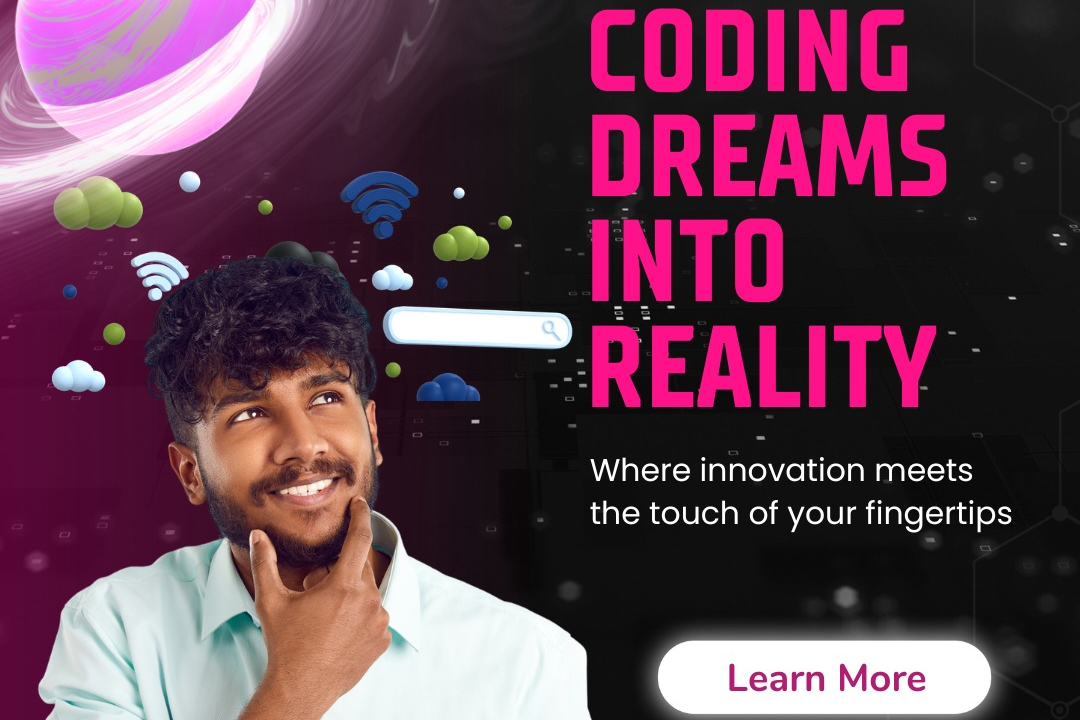Is Flutter Good For App Development?
Flutter is a powerful open-source UI toolkit developed by Google that is ideal for app development.
Is Flutter Good For App Development?
Flutter is an excellent choice for app development due to its ability to create natively compiled applications for mobile, web, and desktop from a single codebase. This significantly reduces development time and costs, as developers can write their code once and deploy it across multiple platforms. Additionally, Flutter’s rich set of customizable widgets and its expressive UI allow developers to craft visually appealing interfaces that enhance user experience. With features like hot reload, developers can see changes in real time without restarting the app, leading to faster iteration and debugging. Overall, Flutter combines efficiency, performance, and flexibility, making it a valuable framework for modern app development.
To Download Our Brochure: Download
Message us for more information: Click Here
Flutter is an excellent choice for app development due to its ability to create natively compiled applications for mobile, web, and desktop from a single codebase. This significantly reduces development time and costs, as developers can write their code once and deploy it across multiple platforms. Additionally, Flutter’s rich set of customizable widgets and its expressive UI allow developers to craft visually appealing interfaces that enhance user experience. With features like hot reload, developers can see changes in real time without restarting the app, leading to faster iteration and debugging. Overall, Flutter combines efficiency, performance, and flexibility, making it a valuable framework for modern app development.
Course Overview
The course titled “Is Flutter Good For App Development?” provides an in-depth exploration of Flutter as a framework for building mobile applications. Participants will learn about Flutter's architecture, its advantages for cross-platform development, and the ease of creating high-performance apps with a single codebase. The course covers essential concepts, including widget customization, state management, and the innovative hot reload feature, which enhances the development workflow. By engaging in real-time projects, learners will gain practical experience and assess Flutter's capabilities in various scenarios, ultimately equipping them with the knowledge to determine whether Flutter is the right fit for their app development needs. This comprehensive course is designed for both beginners and experienced developers looking to expand their skill set in modern app development.
Course Description
The “Is Flutter Good For App Development?” course is designed to provide participants with a comprehensive understanding of Flutter, a popular open-source UI toolkit for building natively compiled applications for mobile, web, and desktop from a single codebase. This course covers the core concepts of Flutter, including its unique widget-based architecture, development environment setup, and the benefits it offers for cross-platform app development. Through engaging real-time projects, learners will explore the framework's capabilities, experience its fast development cycle with features like hot reload, and assess its performance and flexibility in creating stunning user interfaces. By the end of the course, participants will be equipped to evaluate and utilize Flutter effectively in their app development projects, whether they are beginners or seasoned developers aiming to enhance their skill set.
Key Features
1 - Comprehensive Tool Coverage: Provides hands-on training with a range of industry-standard testing tools, including Selenium, JIRA, LoadRunner, and TestRail.
2) Practical Exercises: Features real-world exercises and case studies to apply tools in various testing scenarios.
3) Interactive Learning: Includes interactive sessions with industry experts for personalized feedback and guidance.
4) Detailed Tutorials: Offers extensive tutorials and documentation on tool functionalities and best practices.
5) Advanced Techniques: Covers both fundamental and advanced techniques for using testing tools effectively.
6) Data Visualization: Integrates tools for visualizing test metrics and results, enhancing data interpretation and decision-making.
7) Tool Integration: Teaches how to integrate testing tools into the software development lifecycle for streamlined workflows.
8) Project-Based Learning: Focuses on project-based learning to build practical skills and create a portfolio of completed tasks.
9) Career Support: Provides resources and support for applying learned skills to real-world job scenarios, including resume building and interview preparation.
10) Up-to-Date Content: Ensures that course materials reflect the latest industry standards and tool updates.
Benefits of taking our course
Functional Tools
1 - Flutter SDK: The Flutter Software Development Kit (SDK) is the core tool used for building Flutter applications. It includes a rich set of pre designed widgets, testing libraries, and command line tools. Students will learn how to set up the SDK, utilize its comprehensive library of widgets for varied UI design, and leverage its hot reload feature for instant feedback during development. Mastery of the Flutter SDK allows for rapid application development without compromising quality.
2) Dart Programming Language: Dart is the primary programming language used for Flutter development. This course provides in depth training on Dart, including its syntax, best practices, and object oriented programming concepts. Students will explore how Dart’s features, such as asynchronous programming with Future and Stream classes, enhance app performance and usability. Understanding Dart is vital for creating robust mobile applications that function smoothly across platforms.
3) Visual Studio Code (VS Code): Visual Studio Code is a popular code editor that integrates seamlessly with the Flutter SDK. The course will focus on leveraging VS Code’s powerful features, such as IntelliSense, debugging tools, and extensions specific to Flutter development. Students will learn how to customize their development environment, enhance productivity through shortcuts, and troubleshoot effectively via integrated debugging functionalities.
4) Android Studio: As an alternative to Visual Studio Code, Android Studio is another robust Integrated Development Environment (IDE) for Flutter development. This tool provides comprehensive support for building Android applications and offers advanced features like a layout editor and Android emulators. Students will gain insights into setting up and using Android Studio effectively, exploring its tools for performance analysis, and understanding its integration with the Flutter plugin for cross platform development.
5) Firebase: Firebase is a powerful backend as a service tool that integrates well with Flutter applications. Students will explore how to use Firebase for real time database services, authentication, cloud storage, and hosting. The course covers setting up Firebase in a Flutter project, which is crucial for creating applications with real time data synchronization and user authentication. Learning to utilize Firebase will prepare students for developing modern, feature rich applications.
6) Postman: Postman is a popular tool for API development and testing, which students will use to practice making requests to RESTful APIs. The course includes lessons on how to set up Postman, create API endpoints, and test responses. Understanding how to interact with APIs is essential for connecting Flutter applications to backend services, and Postman offers a user friendly interface for exploring and validating the data communication process essential for mobile application functionality.
Combining these tools and technologies, students will receive a comprehensive training program that equips them with the skills needed to develop robust Flutter applications, ensuring they are industry ready upon course completion. Each tool plays a crucial role in creating efficient workflows and enhancing the learning experience, fostering a deep understanding of Flutter as a powerful framework for mobile app development.
Comprehensive Overview of Tools and Technologies for Flutter Development
1. Flutter Packages and Plugins: Flutter’s ecosystem includes a vast array of packages and plugins that extend its functionality. Students will learn how to search for, install, and implement packages from the Flutter package repository, pub.dev. Understanding how to utilize these ready made solutions can significantly speed up the development process, allowing developers to integrate features like image loading, state management, and more with ease.
2. State Management Solutions: Managing state is a critical aspect of Flutter application development. This section will cover various state management techniques, including Provider, Riverpod, Bloc, and GetX. Students will explore the pros and cons of each approach and learn when to apply them to maintain a clean and efficient codebase. Mastering state management is essential for creating scalable, maintainable applications.
3. UI/UX Design Principles: A key component of mobile app development is understanding user interface (UI) and user experience (UX) design principles. This course section will introduce students to material design guidelines and best practices for creating visually appealing and intuitive apps. Students will engage in practical projects that emphasize the importance of balancing aesthetics and usability.
4. Working with APIs: Beyond just using Postman for API testing, learners will delve into how to effectively consume RESTful APIs within their Flutter applications. The course will cover the entire lifecycle of API integration, including making HTTP requests, handling responses, and managing error states. Additionally, students will get hands on experience in parsing JSON data and displaying it within their applications.
5. Testing and Debugging: This module will focus on the importance of testing in the application development lifecycle. Students will learn about the different types of testing in Flutter, including unit testing, widget testing, and integration testing. Understanding these concepts will help students ensure their applications are bug free and maintainable. They will also acquire debugging strategies to quickly identify and resolve issues within their code.
6. Deployment and Release Management: Once an application is developed, the next crucial step is deployment. This course section will guide students through the process of preparing their apps for release on both the Apple App Store and Google Play Store. Topics will include configuring app icons, setting up app permissions, and creating a release build. Students will gain insights into best practices for managing updates and versioning following their application launch.
7. Continuous Integration/Continuous Deployment (CI/CD): Introducing students to CI/CD pipelines will help them understand how to automate the building, testing, and deployment processes. By integrating tools like GitHub Actions or Travis CI, students will learn how to set up automated workflows, ensuring that code changes are reliably tested and deployed without manual intervention.
8. Real time Collaboration Tools: Working on projects often involves collaboration with other developers and stakeholders. This section will cover tools like Git and GitHub for version control, allowing students to collaborate efficiently and manage code changes. Understanding version control is essential for any development project, ensuring that multiple contributors can work together without conflict.
9. Performance Optimization: This module will focus on performance best practices specific to Flutter applications. Students will learn techniques for optimizing application performance, such as reducing widget rebuilds, image loading strategies, and profiling Flutter applications to identify bottlenecks. Mastering these techniques will enable students to deliver smooth and responsive applications.
10. Building for Multiple Platforms: Flutter's strength lies in its ability to build applications for both iOS and Android from a single codebase. Students will learn the differences in development practices between platforms and how to leverage Flutter's capabilities to ensure that their applications are truly cross platform. This includes understanding platform specific design considerations and adapting UI for different screen sizes.
By encompassing these additional elements, the course will provide a thorough foundation in Flutter development, preparing students not only to create applications but also to thrive in real world development environments. Graduates will leave with a well rounded skill set, ready to tackle challenges and innovate in the ever evolving field of mobile app development.
Browse our course links : Click Here
To Join our FREE DEMO Session: Click Here
This information is sourced from JustAcademy
Contact Info:
Roshan Chaturvedi
Message us on Whatsapp: +91 9987184296
Email id: Click Here










